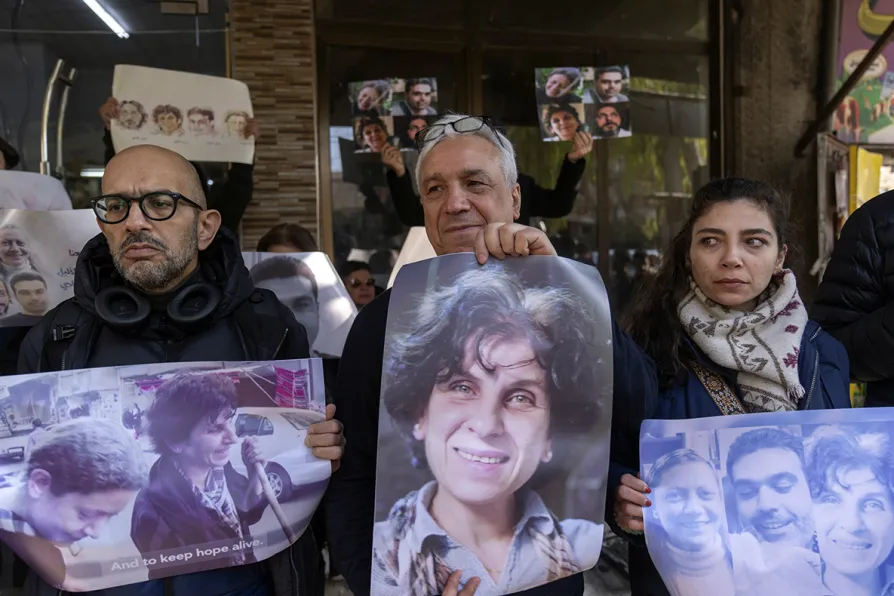Protesters in Syria demand justice for disappeared activists and accountability from all factions

 Relatives take part in a protest demanding the whereabouts of four activists who disappeared during the war between opposition groups and former President Bashar Assad's forces, in Douma, Syria, January 1, 2025
Relatives take part in a protest demanding the whereabouts of four activists who disappeared during the war between opposition groups and former President Bashar Assad's forces, in Douma, Syria, January 1, 2025
HUMAN rights campaigners in Syria held a sit-in protest on Wednesday demanding justice for four activists who were forcibly disappeared in 2013 — and whose fate remains one of the most haunting mysteries of the 13-year civil war.
On December 9 2013, gunmen stormed the Violation Documentation Centre in Douma, north-east of Damascus, and took Razan Zaitouneh, her husband Wael Hamadeh, Samira Khalil and Nazem Hammadi.
Outspoken and defiantly secular, Ms Zaitouneh was one of Syria’s best known human rights activists. She chanted in protests against then president Bashar al-Assad but was also unflinching in documenting abuses by rebels fighting to oust him.
Similar stories

The transformation of a stable secular state into a fractured ruin largely ruled by Western-backed fundamentalists exposes the hollow nature of ‘multipolarity’ and the absence of principled anti-imperialism today, writes ZOLTAN ZIGEDY













